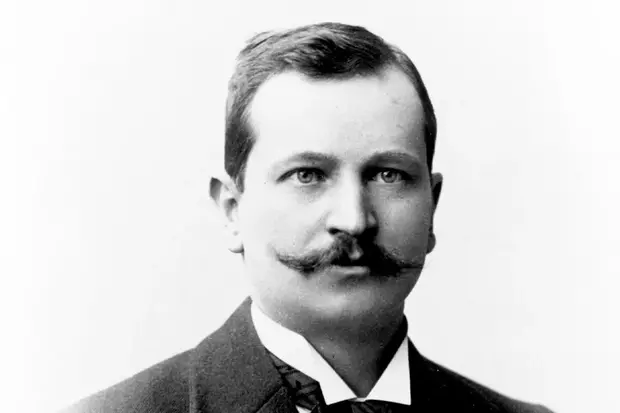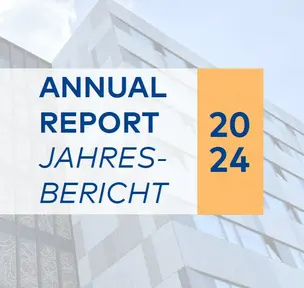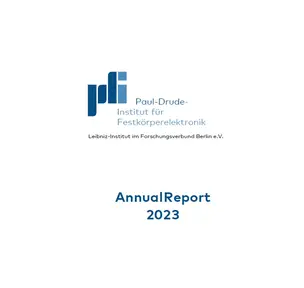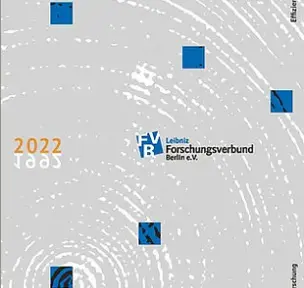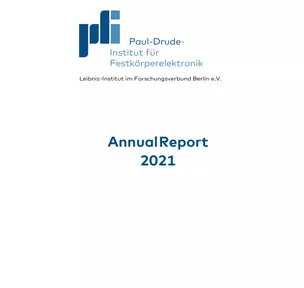The Institute
The Paul-Drude-Institut für Festkörperelektronik (PDI) is a research institute in Berlin, Germany. We perform basic and applied research at the nexus of materials science, condensed matter physics, and device engineering.
The institute is part of the Forschungsverbund Berlin and a member of the Leibniz Association.
At PDI, we focus on the fabrication and analysis of nanomaterials for semiconductor technology. Since our foundation in 1992, we have been dedicated to the advancement of materials science, particularly in the development and application of molecular beam epitaxy (MBE). We have the expertise and facilities in-house to manage the entire process from growth of materials, to microstructural characterization, spectroscopic analysis, and theoretical modeling. PDI works closely with partners from science, industry and academia, and actively engages in the transfer of knowledge and technologies to the public. The institute is committed to advancing science through the training and education of young researchers.
Mission
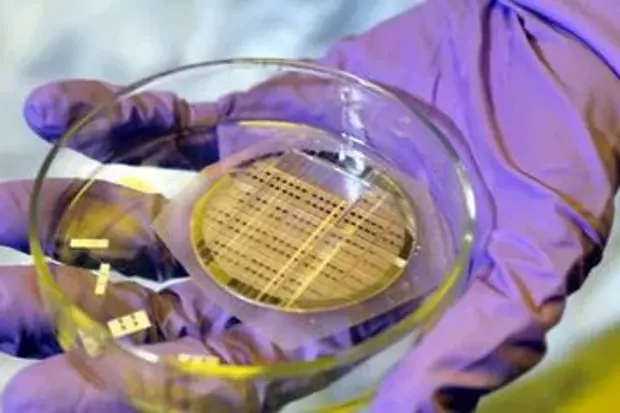
Our mission is to inspire and demonstrate new functionalities for future technologies through a symbiosis of materials science and solid-state physics.
Based on the strong belief in the importance of fundamental research, we strive for the best dissemination and transfer of scientific knowledge, ideas and technology from the institute to society. Our knowledge and technology transfer activities aim to:
- Maximize the impact of research generated at the institute
- Offer services to PDI staff and external partners
- Create commercial value
Good Scientific Practice
The foundation of every scientific process is unconditional honesty towards oneself and others in daily scientific work. From this maxim arise the rules of good scientific practice, which constitute the prerequisite for credible and effective research. Ensuring the validity and application of these rules is therefore a core task of science.
The Executive Board of the Forschungsverbund Berlin e.V. (FVB) passed a basic resolution on safeguarding good scientific practice back in 2000 and subsequently issued further regulations on this basis. These regulations take into account both the corresponding guidelines and code of conduct of the Leibniz Association, as well as the code of conduct with Guidelines for Safeguarding Good Scientific Practice of the German Research Foundation (DFG). Since October 27, 2021, a revised version of the Rules of Procedure in Cases of Suspected Scientific Misconduct of the FVB has been in effect. All scientific staff at PDI are obliged to adhere to these rules of good scientific practice as the basis of their research work.
Ombudsperson
The scientists at PDI elect a full-time and deputy Ombudsperson in a secret ballot as advisors and confidants for general questions regarding good scientific practice and as mediators in conflict situations. The Ombudsperson also investigates allegations of scientific misconduct. If concrete suspicions of such misconduct arise, Ombudspersons can - and if necessary, must - involve the institute management and initiate the formal procedure according to the procedural rules of the FVB. This forwards the examination of the allegations to the higher-level Ombuds body of the FVB. Both the local Ombudsperson and the higher-level Ombudsman committees treat all inquiries neutrally, fairly and in strict confidence and endeavor to resolve conflicts through mediation.
In June 2024, Michael Hanke was elected to the position with Jonas Lähnemann as his Deputy. The next election will take place in 2027.
Higher-level Ombuds bodies
- FVB
Prof. Dr. Martin Wolf
Fritz-Haber-Institut der Max-Planck-Gesellschaft
wolf(at)fhi-berlin.mpg.de - Leibniz Association
Prof. Dr. Dr. Hans-Georg Joost
Deutsches Institut für Ernährungsforschung Potsdam-Rehbrücke (DIfE)
joost(at)dife.de - DFG: Ombudsman für die Wissenschaft
Geschäftsstelle
Jägerstraße 22-23
10117 Berlin
geschaeftsstelle(at)ombuds-wissenschaft.de
Policies
The knowledge and technology transfer activities at PDI are guided by our policies on intellectual property, publication, commercialization and cooperation, spin-offs, outreach, and communication.
Intellectual Property
The institute aims to increase the number of commercializable intellectual property (IP). Research activities are screened for inventions with high potential for commercialization. Commercializable and new research findings should be protected by seeking intellectual property rights (IPR). Potential conflicts between scientific publication and the application of IPRs are avoided through early assessment and clear, effective processes. Rather than the pure number of patents, the institute seeks to increase the number of licensed patents, based on IP with high commercial potential. Applying for international patent coverage and identifying potential licensing partners during the international phase limits the financial involvement of PDI while maximizing the opportunities for the licensing partners.
Licensing
Successful licensing agreements should stimulate the broad use and application of the technology through the licensees while guaranteeing appropriate commercial compensation for the institute. Exclusive licenses are avoided. In case of exclusive licensing, the licensee should compensate for patenting fees. Thirty percent of any potential licensing income is directly forwarded to the inventors at PDI, seventy percent is kept by the institute.
Publication
The institute wants to realize wide dissemination of its research results. Apart from publication in high impact journals, all publications from PDI should be made available – wherever permitted- as open access versions on the website of the institute. For maximizing visibility, the use of open access databases and repositories is encouraged.
Commercialization and Cooperation
The institute wants to build successful, longterm relationships with its external partners. Transparency, integrity and clear standards are the basis for this. Commercialization and application aspects should be evaluated when initiating new research projects and the potential for including external cooperation partners should be tested. Before starting any cooperation with external partners, IP- and commercialization issues should be clarified between the partners. In all cooperation agreements, the internal policies of PDI regarding IP, licensing and publication need to be preserved.
Spin-offs
The institute actively encourages and supports the commercialization of research results through the creation of spin-offs from PDI. Unnecessary barriers when negotiating licensing agreements with the spin-off are avoided.
Communication and Outreach
Effective internal and external communication, as well as outreach activities, are an import aspect of successful knowledge and technology transfer at PDI. Internal communication aims to raise awareness for commercialization, entrepreneurship and IP amongst PDI staff. Outreach activities and external communication should increase the visibility of PDI through active engagement with the public, industry, academia and politics.
History
Paul Drude
Paul-Drude-Institut für Festkörperelektronik was founded in 1992, emerging from the former Zentralinstitut für Elektronenphysik of the Academy of Sciences of the German Democratic Republic (GDR).
The institute was named after German physicist Paul Drude (1863-1906)—a renowned German physicist who made significant contributions to the field of optics and its connection to the electrical and thermal properties of solids. One of his notable achievements was the publication of an influential textbook on optics, titled "Lehrbuch der Optik," which was first released in English in 1902.
Drude's pioneering work includes several important publications. Among them are "Bestimmung der optischer Constanten der Metalle" (1890), where he determined the optical constants of metals. Another notable publication is "Physik des Äthers auf elektromagnetischer Grundlage" (1894), which discusses the physics of the ether based on electromagnetic principles.
Paul Drude's contributions to the understanding of optics and its connection to solid-state physics continue to be influential and are widely recognized in the field of physics.
Annual Reports
Click on an image below to read or download the annual report. Older annual reports are available in the Archive.
